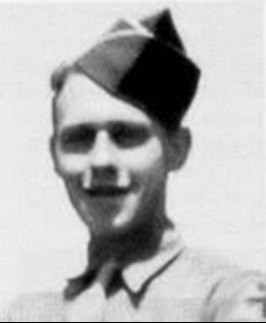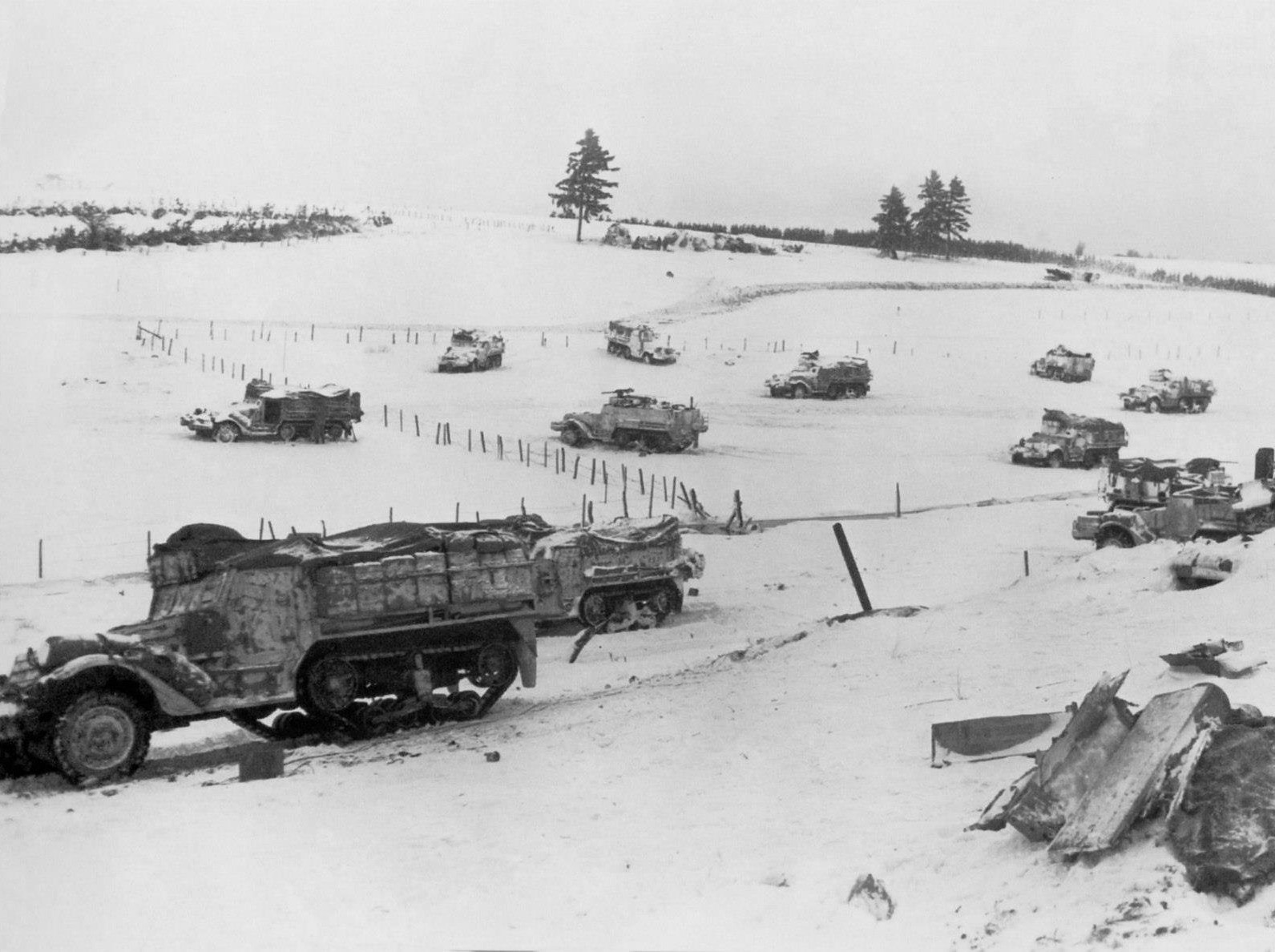A forced march as part of the 3rd Army thrust, fate placed us outside the City of Bastogne. A Christmas time night infiltration through the city had us replacing our comrades of the 4th Armored who were withdrawn towards Metz, France. We took our place alongside the brave men of the 101st Airborne Division.
As New Year’s dawned, we were dug in scarcely a mile east of Bastogne, after having infiltrated to this forward position under cover of darkness. Our task force was assigned the left sector of the Combat command Zone with the mission of taking the high ground east and northeast to Oubourcy and Michamps, Belgium. This was to be a concerted assault all along the corps front.
 At 0800 hours the attack got underway over snow covered ground and bitter cold. Opposition was moderate and at noon time we were in a position approximately one mile west of Arloncourt. Now enemy resistance stiffened and was to remain very strong for the remainder of the battle. Artillery fire was coming in from three sides but we were able to advance to the edge of a small woods west of Onbourcy, Belgium. Resistance forced a halt for the night.
At 0800 hours the attack got underway over snow covered ground and bitter cold. Opposition was moderate and at noon time we were in a position approximately one mile west of Arloncourt. Now enemy resistance stiffened and was to remain very strong for the remainder of the battle. Artillery fire was coming in from three sides but we were able to advance to the edge of a small woods west of Onbourcy, Belgium. Resistance forced a halt for the night.
Meanwhile, Luftwaffe continued pounding Bastogne and later shifted its attack to the Battalion’s position. Although bombed and strafed in the early evening, no casualties in our ranks resulted. The day had proven very difficult for the battalion but enemy casualties were heavy with four 77mm anti-tank guns destroyed with their crews.
On the following day the first of a series of savage counterblows was repulsed by “A” Company – the task force then continued its own attack against strongly defended, dug-in positions. This mounted advance cleared the way to Oubourcy and Michamps. The enemy poured more and more troops into the sector and just before dawn on 3 January, 1945, new counter attacks were made against us. The attacks were repulsed but our casualties were very heavy. No replacements were available. The 501st Airborne Infantry was ordered further north to attack east on our left flank. The 50th Infantry Battalion was ordered to assume the 501st positions resulting in a very thin line. Poor visibility and swirling snow made our line an easy target for infiltration. Air et artillery support was impossible, so the battle reverted to a vicious duel between ground troops and tanks. All “A” Company officers became casualties. First Sergeant Rimmer took command until 6 January 1945 when enemy activity slackened. The time was used ti improve positions and our artillery badly mauled a replacement enemy force.
On the night of 12 January 1945 “A” and “B” Companies moved into line with the 320th Infantry one-half mile east of Bastogne. Jump off was on time and the first objective, the town of Mageret was in sight the early morning of 13 January. At about 0300 hours 13 January, first and second scouts crested the hill overlooking Mageret and, in very deep snow, reached a large hay mound about half way down the hill and the outskirts of town.
Before the main body was to break cover and move down the hill, I moved forward with the walky-talky. Once at the hay mound with the scouts, radio transmission was to inform the company that the way was clear. Before I was half way to the hay mound, a burp-gun opened up. The rounds napped over me. It was difficult to make any time in the deep snow, so I hit the ground hoping to sink in the snow enough. That was a mistake.Another burst hit the walky-talky that I was holding in my hand. I covered the few hundred yards to the hay stack in about a second. At that time, BAR’s opened up from the top of the hill, and the two scouts and myself took off for the bottom of the hill and a fence of rocks and bushes. This lead to the farm house that was the predetermined CP. A Rush to the house, plus the usual clearing methods, found about 30 Germans in the basement. About 10 were wounded, two very badly shot up.In addition there were some 40 civilians with the village priest down there.
It was about now that I realized that I was very, very cold, except my right arm was warm. A quick look informed me that I now had a second Purple Heart and a lot of problems because the only medic was German and all he had available was my first aid kit. I gave him that and a cigarette. Thank the Almighty; I was tired, cold and very hungry. There was no real pain until the aid station two day later.
